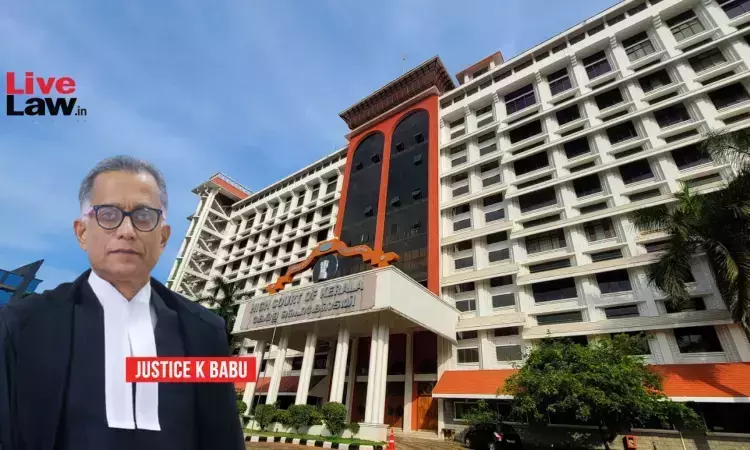- Home
- /
- High Courts
- /
- Kerala High Court
- /
- Sanction To Prosecute Public...
Sanction To Prosecute Public Servant Issued After Reconsideration Of Evidence Can't Be Rejected Merely Due To Refusal Of Previous Sanction: Kerala HC
Rubayya Tasneem
30 April 2024 5:10 AM GMT
The Kerala High Court has stated that a sanction to prosecute public servants issued after reconsideration of the evidence submitted cannot be rejected on the grounds that the previous sanction was refused by the competent authority. “In the present case, the competent authority in the Government refused sanction to prosecute the public servant including accused No.2 which compelled...
The Kerala High Court has stated that a sanction to prosecute public servants issued after reconsideration of the evidence submitted cannot be rejected on the grounds that the previous sanction was refused by the competent authority.
“In the present case, the competent authority in the Government refused sanction to prosecute the public servant including accused No.2 which compelled the investigating agency to submit a refer report before the Trial Court. The Court returned the refer report with a direction to place the entire materials before the sanctioning authority to reconsider the same. The competent authority in the Government reconsidered the materials and found that the public servants had to be prosecuted and accordingly sanction was granted to prosecute them” observed Justice K Babu.
The petitioners were alleged to have committed offences punishable under Section 13(2) (criminal misconduct) read with Section 13(1)(d) of the Prevention of Corruption Act and Section 120B IPC (conspiracy).
The prosecution submitted that the accused nos. 1-6, who were public servants at the time of the alleged offence conspired with accused no. 7 and 8 to fraudulently issue a permit for the construction of a 14 storied apartment at Kowdiar, violating the detailed Town Planning Scheme (DTPS) and thereby permitting accused no. 8 to construct the said building illegally with the intention to obtain pecuniary advantage to the tune of Rs. 9,00,59,340.
It was stated that the competent authority had initially declined to accord sanction to prosecute the public servants resulting in a refer report by the investigating agency that was submitted before the jurisdictional court.
The petitioner challenged the referred report before the Special Court. The Court returned the refer report directing the investigating agencies to place the entire records before the competent authority to consider the matter afresh.
Thereafter, the competent authority after considering the matter afresh accorded sanction to prosecute the public servants. The investigating agency thereafter submitted the final report against the public servants and the other accused.
The petitioners submitted that once the appropriate authority had declined the sanction, the sanction subsequently accorded was not legally valid.
Petitioner no. 2 cited the decision in Chittaranjan Das v. State of Kerala to argue that when the sanction was refused while the accused was in service, he cannot be prosecuted later after retirement, even though no sanction for prosecution under the Prevention of Corruption Act was necessary after the retirement of the public servant.
The court rejected the assertion and clarified that in the decision in Chittaranjan Das, the Supreme Court held that in a case where the sanction sought was refused by the competent authority while the public servant was in service, he cannot be prosecuted later after retirement notwithstanding the fact that no sanction for prosecution under the Prevention of Corruption Act was necessary after the retirement of the public servant.
Citation Number: 2024 LiveLaw Ker 275
Case Title: BS Jayakumar v. State of Kerala, Mansoor J v. State of Kerala, A. Abdul Rasheed @ Dr. AR Babu v. State of Kerala and Sreelatha v. State of Kerala
Case Number: WP(C) No. 580 of 220, WP(C) 431 of 2022, OP(Crl) No. 515 of 2022 and Crl. Rev. Pet. No. 777 of 2022


